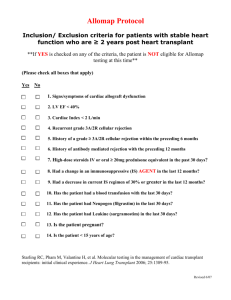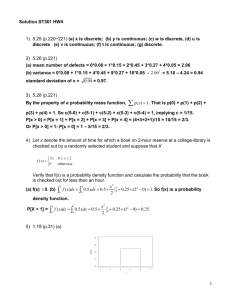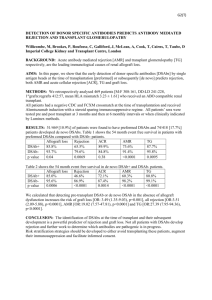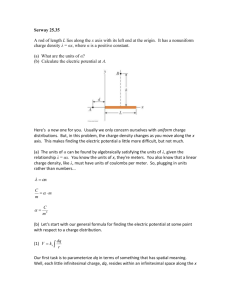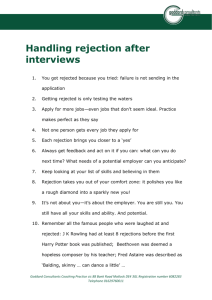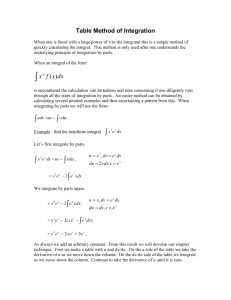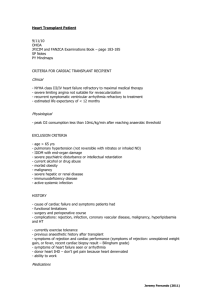AlloMap Testing Summary - Vanderbilt University Medical Center
advertisement
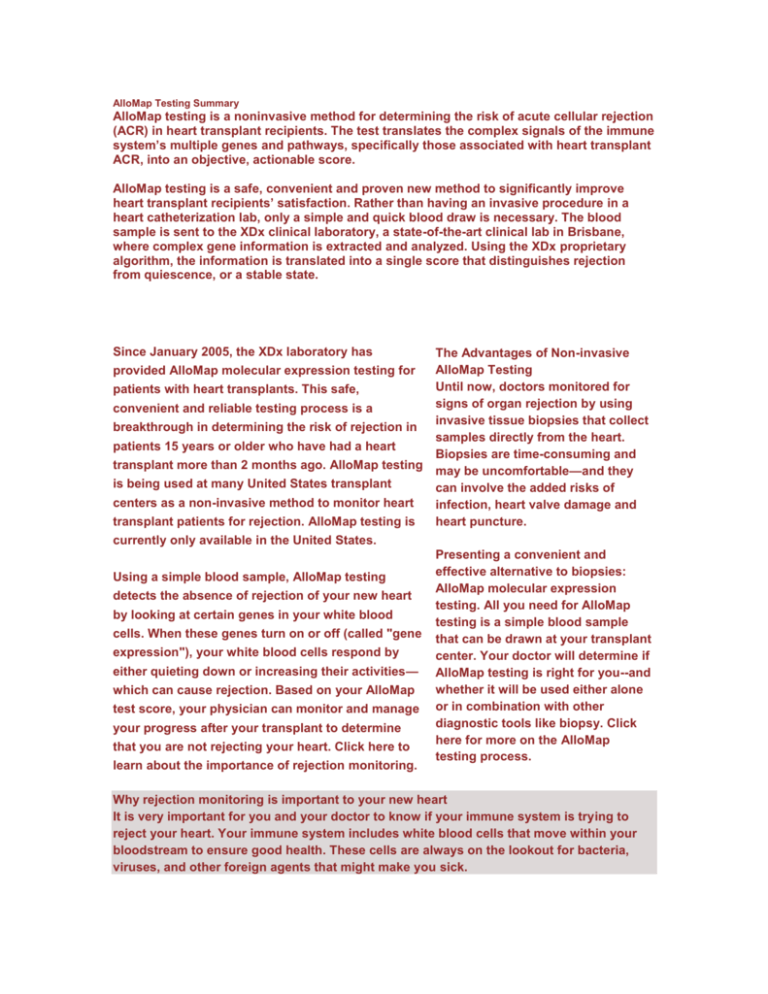
AlloMap Testing Summary AlloMap testing is a noninvasive method for determining the risk of acute cellular rejection (ACR) in heart transplant recipients. The test translates the complex signals of the immune system’s multiple genes and pathways, specifically those associated with heart transplant ACR, into an objective, actionable score. AlloMap testing is a safe, convenient and proven new method to significantly improve heart transplant recipients’ satisfaction. Rather than having an invasive procedure in a heart catheterization lab, only a simple and quick blood draw is necessary. The blood sample is sent to the XDx clinical laboratory, a state-of-the-art clinical lab in Brisbane, where complex gene information is extracted and analyzed. Using the XDx proprietary algorithm, the information is translated into a single score that distinguishes rejection from quiescence, or a stable state. Since January 2005, the XDx laboratory has provided AlloMap molecular expression testing for patients with heart transplants. This safe, convenient and reliable testing process is a breakthrough in determining the risk of rejection in patients 15 years or older who have had a heart transplant more than 2 months ago. AlloMap testing is being used at many United States transplant centers as a non-invasive method to monitor heart transplant patients for rejection. AlloMap testing is The Advantages of Non-invasive AlloMap Testing Until now, doctors monitored for signs of organ rejection by using invasive tissue biopsies that collect samples directly from the heart. Biopsies are time-consuming and may be uncomfortable—and they can involve the added risks of infection, heart valve damage and heart puncture. currently only available in the United States. Using a simple blood sample, AlloMap testing detects the absence of rejection of your new heart by looking at certain genes in your white blood cells. When these genes turn on or off (called "gene expression"), your white blood cells respond by either quieting down or increasing their activities— which can cause rejection. Based on your AlloMap test score, your physician can monitor and manage your progress after your transplant to determine that you are not rejecting your heart. Click here to learn about the importance of rejection monitoring. Presenting a convenient and effective alternative to biopsies: AlloMap molecular expression testing. All you need for AlloMap testing is a simple blood sample that can be drawn at your transplant center. Your doctor will determine if AlloMap testing is right for you--and whether it will be used either alone or in combination with other diagnostic tools like biopsy. Click here for more on the AlloMap testing process. Why rejection monitoring is important to your new heart It is very important for you and your doctor to know if your immune system is trying to reject your heart. Your immune system includes white blood cells that move within your bloodstream to ensure good health. These cells are always on the lookout for bacteria, viruses, and other foreign agents that might make you sick. After a transplant, your white blood cells see your new heart as a foreign object. Rejection occurs when white blood cells attack your new heart. If rejection continues, it can actually damage or destroy your new heart. Visit www.allomap.com, the website dedicated to AlloMap molecular expression testing. AlloMap Testing Description A New Noninvasive Method to Identify Patients at Indications and Special Considerations AlloMap molecular expression testing uses a simple AlloMap testing is indicated for use blood sample to translate the complex signals from in detecting the absence of acute cellular rejection (ACR) in clinically multiple immune system genes and pathways stable cardiac transplant patients associated with heart transplant rejection into an who are: objective, actionable score. AlloMap testing was ≥15 years of age developed and validated in a prospective, blinded >2 months post-transplant and powered study based on samples and clinical Low Risk for Acute Cellular Rejection data collected from the multi-center CARGO study. The AlloMap test is performed at the CLIA-certified XDx laboratory in South San Francisco, California, where the test was developed and validated. The AlloMap test is a 20-gene, real-time, quantitative Special consideration in interpreting results should be given to patients who are: On corticosteroid dosage of >20 mg/day of prednisone or equivalent polymerase chain reaction (qRT-PCR) assay. <30 days post-blood AlloMap testing applies a proprietary mathematical transfusion algorithm that combines the gene expression <21 days post-rejection values from genes associated with cardiac allograft therapy rejection and generates a single clinically actionable score. Results are reported as an AlloMap score - an integer ranging from 0 to 40. The AlloMap Report is delivered via fax to the treating physician, who interprets it in light of the patient’s clinical picture and other test results. After testing, in most circumstances, XDx bills the patient's insurer directly. Incorporating AlloMap Testing into Practice Transplant clinics can include AlloMap testing in a personalized noninvasive management protocol starting at > 2 months post-transplant. Using AlloMap testing, physicians can confidently identify patients at very low risk for acute cellular rejection. Clinical Usage for ALLOMAP testing Longitudinal non-invasive surveillance for ACR Monitoring for ACR while modifying immunosuppressant regimen Identify patients early post-transplant who belong to a very low risk group for ACR within the next few months Alternative to biopsy in patients with access problems Provide additional information in the management of patients with “mild rejection” of biopsy or unclear clinical presentation Negative Predictive Value (NPV) The negative predictive value is the percent of all negative tests that are truly negative tests. For example, for scores <34 in patients 1 or more years post-transplant, the NPV is >99.2%. This means that out of 1000 AlloMap test results with a score <34, AlloMap testing will correctly identify the patient as not experiencing acute cellular rejection (quiescent) at least 992 out of 1000 times; AlloMap testing would miss at most 8 out of 1000 rejections. Interpreting AlloMap Test Results In conjunction with clinical judgment and assessment of graft function, AlloMap testing can reliably identify those patients who are at very low risk for ACR. The AlloMap test report presents the current AlloMap score and corresponding 95% confidence interval. The report also plots the AlloMap scores for tests performed in the prior 12 months. With this information the physician can assess the patients risk for ACR longitudinally. Example of AlloMap test report Click here to enlarge (PDF format). The AlloMap Testing Process From Ordering Tests to Delivering Results AlloMap molecular expression testing is conducted only at the XDx laboratory in South San Francisco, California. Transplant centers must draw and prepare the blood sample according to the specifications outlined in the XDx Laboratory Services Guide and send it to the XDx laboratory. XDx provides all equipment and supplies and conducts on-site training for sample preparation. This diagram illustrates the typical AlloMap testing process. Place your mouse over each numbered section for more details. After testing is complete, in most circumstances, XDx bills the patient’s insurer directly. Click here for more information on billing and reimbursement. AlloMap testing process Billing and Reimbursement XDx Typically Bills Insurers Directly for AlloMap Testing Consistent with the established billing practice for specialized esoteric tests, XDx can bill the patient's health insurer directly. In these cases, medical institutions that order AlloMap testing will not be financially responsible for the test.1 AlloMap testing is priced below the average reimbursement rates for endomyocardial biopsy.2 Even more importantly, AlloMap testing can offer a clinical advancement to the physician and patient, as well as an economical solution for the health care system. Insurers are reimbursing for AlloMap testing ordered for their members. Working Together to Educate Insurers Not Yet Covering AlloMap Testing XDx is committed to working with transplant clinics and patients to ensure that AlloMap tests receive appropriate consideration from the patient’s insurer. Cooperation from both clinician and patient is sometimes necessary for XDx to secure coverage from the insurer for the AlloMap test. XDx shares the concerns of the transplant team in placing an additional financial burden on the patient. As a result, XDx created a patient advocacy and financial assistance program that assists both uninsured and underinsured patients for whom AlloMap testing is ordered. This program assists patients in obtaining the best coverage/reimbursement for this test from their insurers. Additionally, as part of this program, XDx gives preferred pricing for the test to payers who remove co-pay or co-insurance requirements for the test.
